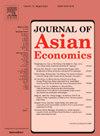空气污染、防御行为和医疗支出
IF 3.4
3区 经济学
Q1 ECONOMICS
引用次数: 0
摘要
本研究考察了空气污染对中国医疗支出的影响,以及个人防御措施在降低这些成本方面的有效性。利用2011年至2019年中国家庭金融调查(CHFS)中包含298,689名居民的个人层面数据,我们采用工具变量回归模型来控制空气污染的潜在内生性。我们发现PM2.5每增加1 μg/m³ ,个人医疗费用就会增加244元人民币(占总费用的5.7% %)。特别是,研究结果表明,积极的措施,如购买私人医疗保险和使用口罩和空气净化器等防护装备,可以显著减少与空气污染相关的医疗支出。仅医疗保险一项就可以将这些成本减少约71.7元人民币(占总支出的1.67 %),突出了与防御行为相关的经济效益和正外部性。我们的研究结果表明,促进健康保险覆盖面和获得防护装备的政策可以减轻受影响人群的经济负担。本文章由计算机程序翻译,如有差异,请以英文原文为准。
Air pollution, defensive behaviors, and medical expenditures
This study examines the impact of air pollution on medical expenditures in China and the effectiveness of personal defensive measures in mitigating these costs. Using individual-level data from the China Household Finance Survey (CHFS) encompassing 298,689 residents from 2011 to 2019, we employ an instrumental variables regression model to control for potential endogeneity of air pollution. We find that a 1 μg/m³ increase in PM2.5 increases personal medical costs by 244 CNY (5.7 % of total expenses). In particular, the results show that proactive measures, such as purchasing private health insurance and using protective gear like masks and air purifiers, significantly reduce air pollution-related medical expenditures. Health insurance alone can reduce these costs by approximately 71.7 CNY (1.67 % of total expenditure), highlighting the economic benefits and positive externalities associated with defensive behaviors. Our findings suggest that policies promoting health insurance coverage and access to protective gear could alleviate the financial burden on affected populations.
求助全文
通过发布文献求助,成功后即可免费获取论文全文。
去求助
来源期刊

Journal of Asian Economics
ECONOMICS-
CiteScore
4.70
自引率
9.40%
发文量
90
期刊介绍:
The Journal of Asian Economics provides a forum for publication of increasingly growing research in Asian economic studies and a unique forum for continental Asian economic studies with focus on (i) special studies in adaptive innovation paradigms in Asian economic regimes, (ii) studies relative to unique dimensions of Asian economic development paradigm, as they are investigated by researchers, (iii) comparative studies of development paradigms in other developing continents, Latin America and Africa, (iv) the emerging new pattern of comparative advantages between Asian countries and the United States and North America.
 求助内容:
求助内容: 应助结果提醒方式:
应助结果提醒方式:


